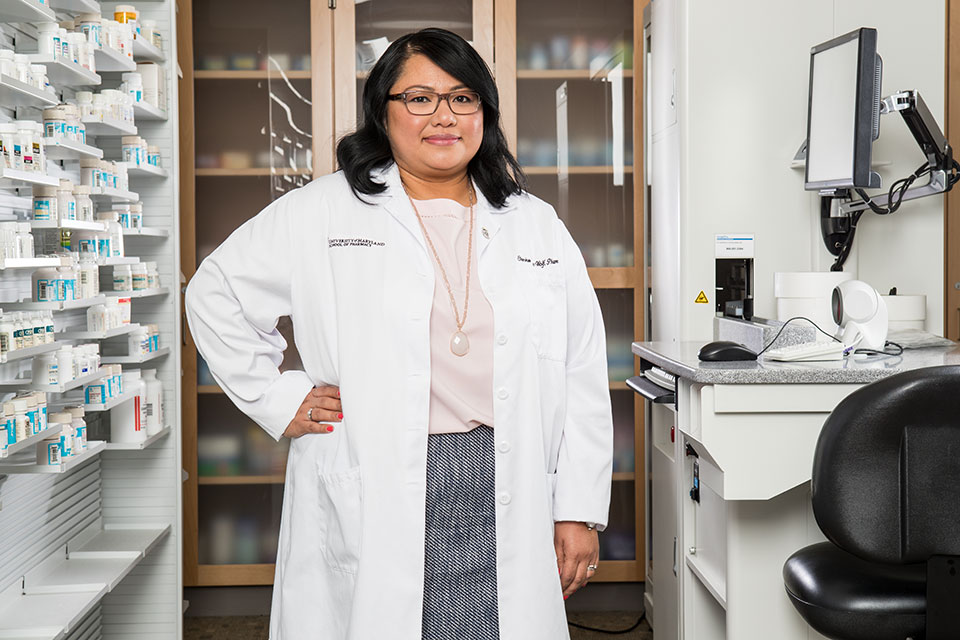Students Advocate in Annapolis for the Pharmacy Profession
During the 2013 session of the Maryland General Assembly, student advocates from the School of Pharmacy had an extraordinary opportunity to encourage legislators to support the rapidly expanding role of pharmacists in health care.

By Steve Berberich
March 2, 2013
Maryland is a leading state in adapting to the provisions of the new federal Affordable Care Act, paving the way for more patient access to pharmacists’ services. An energetic delegation of 20 student pharmacists from the School traveled to Annapolis to “drive home” that opportunity during their 2013 Legislative Advocacy Day on Feb. 26 for group and one-on-one discussions with their state delegates and senators.
They were accompanied by Natalie D. Eddington, PhD, FAAPS, FCP, dean and professor of the School. “This is a day when we bring our students to Annapolis to expose them to the legislative process in our state and to help them understand their significant role in advocating for their profession as well as for their education,” said Eddington. “We have them discuss pertinent issues that will impact the way they practice.”
The student pharmacists advocated, for example, for legislation to expand state authorization of the now-limited kinds of immunizations pharmacists can provide. Student pharmacist Lisa Hutchins said, “All the studies have shown that instead of cutting into the doctors’ and nurses’ [piece of the] pie when it comes to who you vaccinate, we are expanding our [practice] borders and reaching more patients than ever. Now the pharmacist can reach a wider subset of people that don’t go to the doctor for that preventive service.”
Several legislators took time from their duties to meet with the School of Pharmacy group and offer advice to the young professionals on career, life, and community service.
Delegate Keith Haynes of Baltimore City said, “I absolutely commend the University, the dean, and staff for their advocacy, for coming down and letting your voices be heard and your presence be seen. You are actually engaging in the [legislative] process. Your University and the School of Pharmacy are tremendous in this effort.”
The students found that the legislators had an understanding of how the Affordable Care Act paves the way for pharmacists to further demonstrate their value by expanding patients’ access to a pharmacist’s services, such as medication therapy management.
Student pharmacist Jasmine Ebron, after meeting the legislators, senses that more collaboration is needed to best help advance the services. “I felt it was important for some of the legislators to understand the value we place on things like our programs of managing chronic diseases.” She also wanted the legislators to appreciate that “the benefit of pharmacists taking a more active role in chronic disease management is that by adequately managing patients, [we can] reduce some of the recurring [hospital] admission rates and reduce some of the financial burdens on the health system.”
A larger group of students and faculty from the School also participated in the Maryland Pharmacy Coalition’s annual Advocacy Day in Annapolis on Feb. 14.



